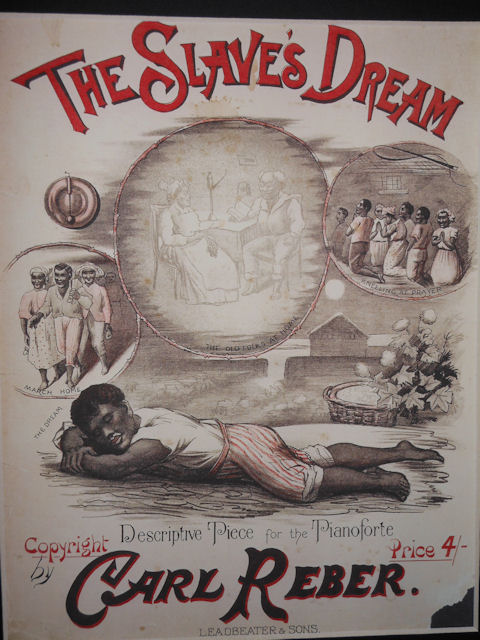In this I Remember, I Remember analysis, we will explore the meaning of the poem at a deeper level. The poem I Remember, I Remember is the lamentation of Thomas Hood over the loss of childhood bliss. The refrain, “I remember, I remember” that begins each stanza of the poem makes it evident that this poem includes fond recollections from the poet’s boyhood days. He brings up memories from that time in his life not just for the purpose of reminiscing but also as an escape from his painful adult life.
In the first stanza, it appears to us that the poet has lost all interest in life. He says, “But now, I often wish the night had borne my breath away!” He wishes life had ended before he attained adulthood so that the only life he would have known would be one of simple pleasures. He recollects the familiar space of his childhood home and the sunlight that greeted him without fail every day to comfort himself. He mentions how the sun rose and set at the same time every day to possibly denote how childhood was free of any major ups and downs and uncertainties. The poem deeply rues the loss of that childhood safety. From the first stanza, a contrast is drawn between the childhood happiness and the drudgery of adult life, evidencing that Hood’s life as an adult has not matched his childhood happiness.
Children are filled with capacity for wonder. They do not need much to be happy and the simple beauties of life are enough to soar their spirits. The poet reminisces the beautiful flowers of roses, violets, lilies, and lilacs from his childhood that would fire his imagination such that he thought they were made of light. The poet misses that time of his life when he had the chance to stop and smell the flowers, i.e., appreciate the simple joys of life. As adults, we are so consumed in practical responsibilities that small joys, such as the joy of appreciating nature, go missing from our lives.
The poet then woes the loss of the abandon and carefree attitude that children can enjoy. Children, unlike adults, are expected to set aside time for playing and having a good time. The poet misses that beautiful time of his life when he could just spend his time swinging, far removed from practical responsibilities that he now has to shoulder as an adult. He misses the life energy that used to course through his veins, mentioning how his youthful spirits have now been dampened by the vicissitudes of adult life.
Last, the poet laments the loss of childhood ignorance. Ignorance is bliss, for it treasures innocence and protects one from the harsh realities of life. As a kid, Thomas Hood used to think that the large fir trees surrounding him could nearly touch heavens. By saying so he is making a reference to the hope a child has that good things are close and secure. However, as an adult, he has none of the bliss safeguarded by childhood ignorance. He has understood life for what it is and deeply misses the time when he believed heavens were close.
Nature has been used very effectively in the poem to recreate the bliss of childhood. The reference to the flowers and trees from the poet’s childhood creates the feeling of a happy place where the poet could retreat to in order to soothe his soul. On the outset, the poem feels like a lamentation for the loss of childhood happiness; but what the poet actually wants to profess is how dark and painful adult life is. Childhood has been referenced by the poet in order to accentuate the bleakness of his adult life by contrast.
I Remember, I Remember Themes
Childhood is the most prominent I Remember, I Remember theme. Throughout the poem, Hood recollects beautiful childhood memories – of the house in which he was born, the trees and flowers he grew up with, and the swing on which he enjoyed the youthful zest of life. The poet depicts childhood as a blissful time where one is filled with vitality, capacity for wonder, carefree abandon, and protective ignorance. The poet recollects each of these beautiful aspects of his childhood to convey more effectively the drudgery of life once one turns into an adult.
Melancholia is another overarching theme of the poem. Although Hood is recollecting fond memories of childhood, the poem is a deeply melancholic one for the bliss of childhood is constantly being compared to the bleakness and pain of the present. It seems that struck by melancholia, the poet withdraws into happy memories of childhood to soothe his spirits and to also convey to full extent of his melancholia by comparing it with childhood happiness.
I Remember, I Remember Poetic Devices
This section discusses the I Remember, I Remember poetic devices.
In the first stanza, the poetic device of personification has been used. The sun has been presented as a human who creeps into the poet’s room in the morning, showing great punctuality.
In the third stanza, the poet’s spirits as a child has been compared to feathers in order to denote lightness, so the usage is akin to a simile
The poem uses the poetic device of refrain by repeating “I remember, I remember” at the start of each stanza for the sake of emphasis.
Conclusion: I Remember, I Remember
I remember, I remember by Thomas Hood is a lamentation over the loss of childhood happiness. The poet takes us through some of the beautiful moments he enjoyed as a child to show the bliss he has once experienced. However, the purpose of this lamentation is to contrast childhood joys with the bleakness and drudgery of adult life. The poet draws parallels between life as a child and an adult to show how the happiness he once knew is long gone. The mixture of nostalgia and melancholia makes this emotional poem strike a chord with readers.
Some online learning platforms provide certifications, while others are designed to simply grow your skills in your personal and professional life. Including Masterclass and Coursera, here are our recommendations for the best online learning platforms you can sign up for today.
The 7 Best Online Learning Platforms of 2022
- Best Overall: Coursera
- Best for Niche Topics: Udemy
- Best for Creative Fields: Skillshare
- Best for Celebrity Lessons: MasterClass
- Best for STEM: EdX
- Best for Career Building: Udacity
- Best for Data Learning: Pluralsight















